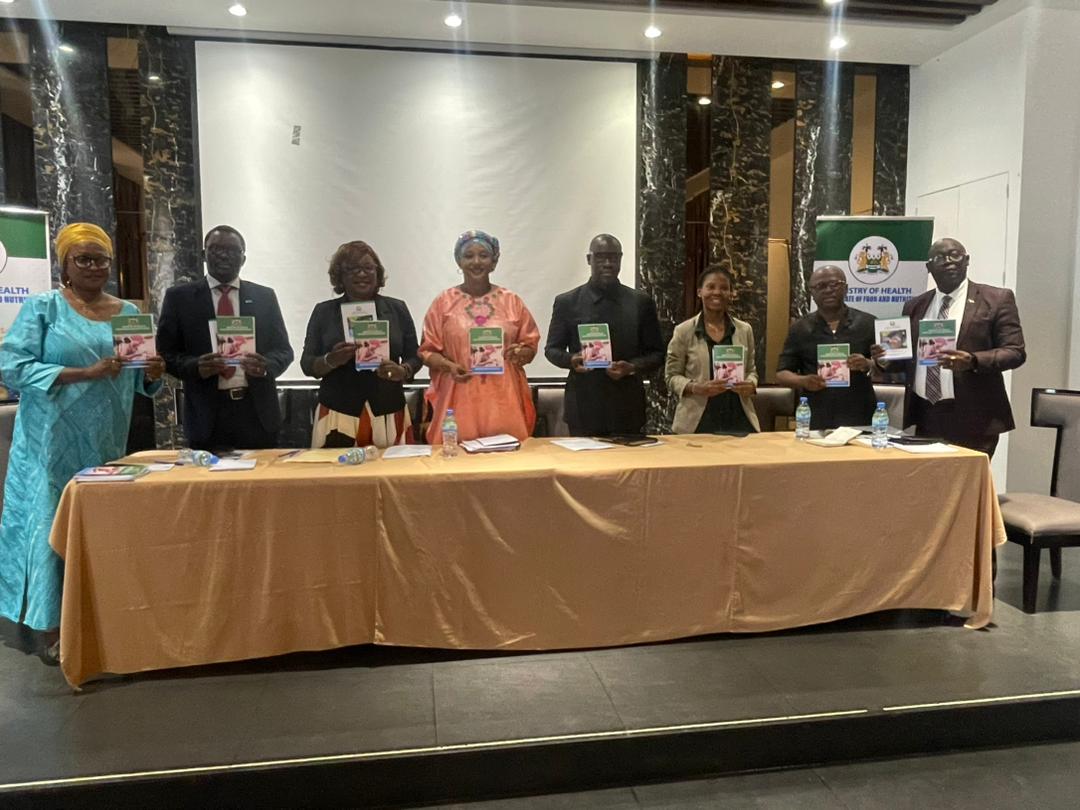Success story –Breastfeeding - gains momentum in Sierra Leone

Sierra Leone has made tremendous strides in breastfeeding and has not only reached but surpassed the 2025 WHO global target of 50% for exclusive breastfeeding. According to the 2021 Sierra Leone National Nutrition Survey, the exclusive breastfeeding rate stands at 52.7%. There is improvement in timely initiation of breastfeeding (immediately, within 1 hour of birth) from 57% in 2017 to 89% in 2021, among the highest in the Africa region. The country aims to increase exclusive breastfeeding rates to at least 70% by 2030. The 2024 status report on the national implementation of the International Code of Marketing of Breastmilk Substitutes ranks Sierra Leone as one of the strongest in the African region on implementation of its National Breastmilk Substitutes Act with a score of 99% for being substantially aligned to the international Code and is among the first 33 of the 194 World Health Organization (WHO) Member States (countries) attaining this status. Breastfeeding is key for child survival, growth and development.
Despite the gains made, 21% of children aged 0- 23 months are fed from a bottle with a nipple and 19% of infants under age 6 months are breastfeeding and consuming plain water. Reasons provided by mothers on why water is given to babies include:
- first milk (colostrum) is not enough to satisfy the baby
- male babies eat more, so breast milk is not enough.
- giving water to babies will help them stop crying, ease bowel discomfort and sleep longer - water is “life” and should be the first meal for a newborn.
The percentage of exclusively breastfed children decreases with age, from 77% among those age 0-1 months to 28% among those age 4-5 months. To address these challenges, the Government of Sierra Leone has adopted the Breastmilk Substitutes (BMS) Act in 2021, and officially induct members of the Breastmilk Substitute Advisory and Promotion Committee to provide oversight in the execution and enforcement of the Act on 28th June 2024. The Act aims to provide for safe and adequate nutrition for infants and young children by promoting breast-feeding and regulating the marketing of breast-milk substitutes and for other related matters.
WHO played a role in the following:
-
- drafting of the Breastmilk Substitute Act including advocacy to Parliamentarians for the enactment of the Bill.
- supported the development, finalisation and dissemination of a user-friendly handbook for health workers and conducted an orientation session for Hospital Management and District Health Management Teams
- supported the development of a National Policy on Infant and Young Child Feeding
-
- Worked closely with the MoH to establish and implement the Baby Friendly hospital initiative (BFHI) in regional maternity and referral hospitals to promote, protect and support breastfeeding with the WHO BFHI competency-based verification tool kit introduced to monitor progress
- collaborated with Directorate of Food and Nutrition, UNICEF, Focus 1000 (CSO platform) and partners:
- on the “no water, stronger with breastmilk only “campaign to promote breastfeeding.
- to advocate to MDAs for the appointment of staff as specified by the Act to be members of the Advisory committee.
The involvement of Parliamentarians as members of the Code Committee (as champions for nutrition) and partnership among UN Agencies through the UN Nutrition Network (UNICEF, WFP, WHO) Civil Society Platform (FOCUS 1000), the SUN Secretariat and partners during the planning and implementation phase contributed to attainment of breastfeeding milestones.
WHO will continue to provide support to the Ministry of Health and work in collaboration with the UN Nutrition Network and partners to sustain breastfeeding through the implementation, monitoring, and enforcement of the Breastmilk Substitutes Act.
|
|
|
|
High level Engagement with Parliamentarians (including Speaker of Parliament, Opposition Leaders and Minister of Health) in collaboration with partners (MOH, Focus 1000 and UNICEF) |
Orientation on the BMS Act- District and Hospital Management Teams |
|
|
|
|
BFHII training sessions |
|
[1] Sierra Leone National Nutrition Survey (SLNNS, 2021)
[2] Sierra Leone National Nutrition Survey (SLNNS, 2017)
[3] Marketing of breast‑milk substitutes National implementation of the International Code status report 2024 ISBN (WHO) 978-92-4-009448-2
[4] Sierra Leone Demographic Health Survey ,2019
[5] Sierra Leone Demographic Health Survey ,2019
[6] ACT Supplement to the Sierra Leone Gazette Vol. CXLXII, No. 55
WHO Sierra Leone
Email: sharkahm [at] who.int (sharkahm[at]who[dot]int)